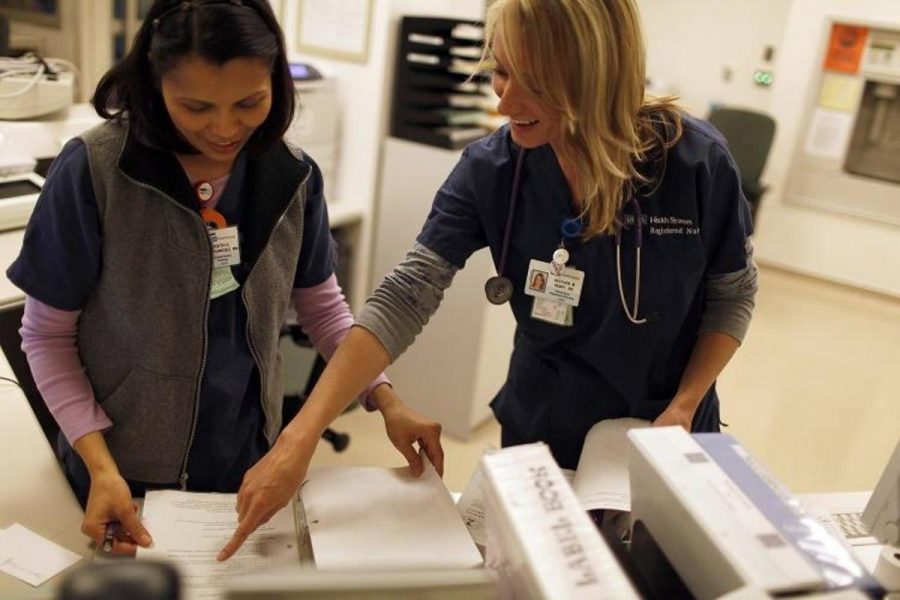Another outbreak… this time closer to home
So far, the UCLA Medical Center has been doing everything to prevent the CRE outbreak from spreading any further. They implemented stricter policies for decontaminating any invasive medical devices. They have also notified public health officials and sent test kits to the 179 patients at risk for contamination.
February 26, 2015
Ebola is still very much a problem in West Africa, but the numbers of cases of the disease are diminishing. However, there may or may not be a new medical threat, this time in the U.S.
Medicine has evolved throughout the years, with various antibiotic breakthroughs having been made by scientists. And with new antibiotics comes resistance, by means of bacteria constantly evolving to combat medical drugs.
On Feb. 18, doctors at the Ronald Reagan UCLA Medical Center, one of the top medical facilities in the nation, discovered that a contaminated medical duodenoscope was responsible for spreading antibiotic-resistant bacteria to patients.
This scope is a flexible, lighted tube that is threaded through the mouth, throat, stomach, and into the duodenum, the top of the small intestine, during a procedure called endoscopic retrograde cholangiopancreatography, or ERCP.
It is used to unlock bile ducts and take care of any issues in the pancreas.
The bacteria, known as carbapenem-resistant Enterobacteriaceae or CRE, is dangerous, killing as many as half the people it infects, according to the Centers for Disease Control.
“It is estimated that more than 500,000 ERCPs are performed each year in the U.S,” the American Society for Gastrointestinal Endoscopy told CNN News reporters.
“From what we know, over the past few years, there have been fewer than 100 known cases of transmission of these problematic bacteria through ERCP.”
The outbreak originated when a patient with CRE received a scope procedure at the hospital, spreading to other patients with similar procedures. So far, two people have already died from the infection, and UCLA contacted 179 other people that may be infected.
“It is scary that so many people are at risk for infection. We fight off one disease, Ebola, only to be attacked by another,” sophomore Orchid Wang said.
Though the scopes were cleaned meticulously according to the protocols set by the Food and Drug Administration (FDA), the superbug still managed to spread.
This is because cleaning the devices “may not entirely eliminate the risk” of transmitting infection unless done after a high-level disinfection, as the FDA told ABC News.
UCLA is now using a new sterilization procedure that involves applying gas to the scopes.







